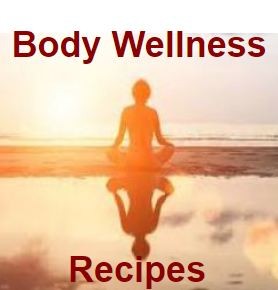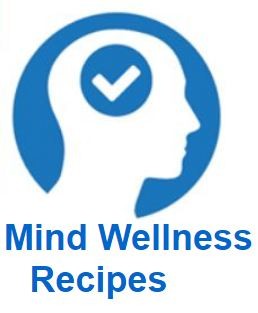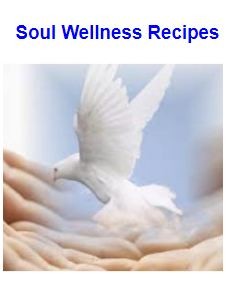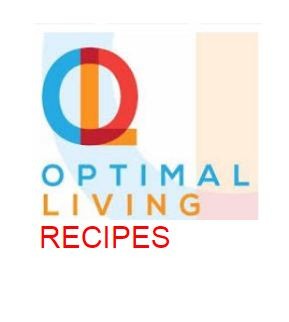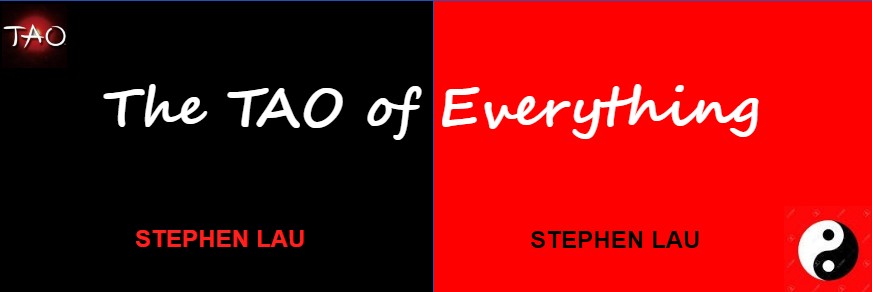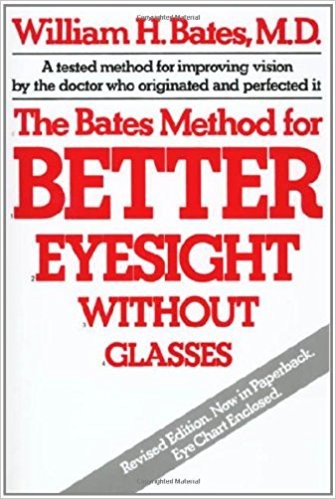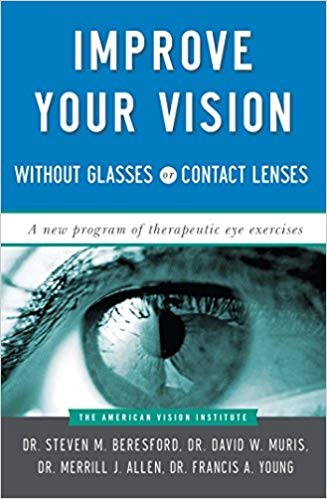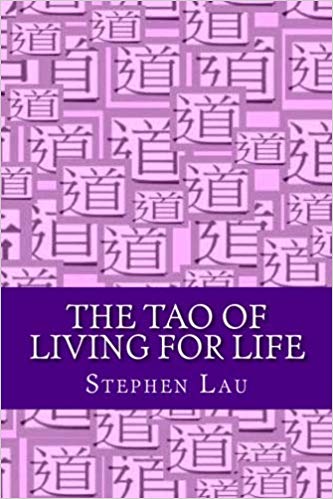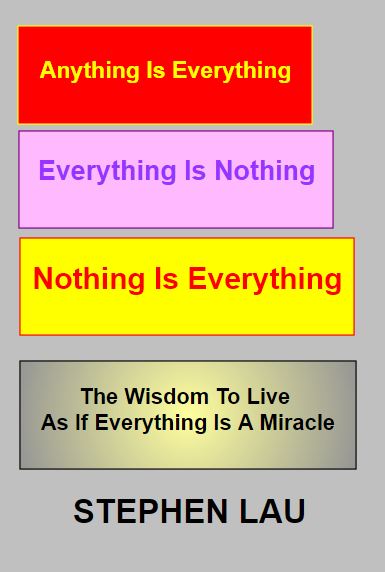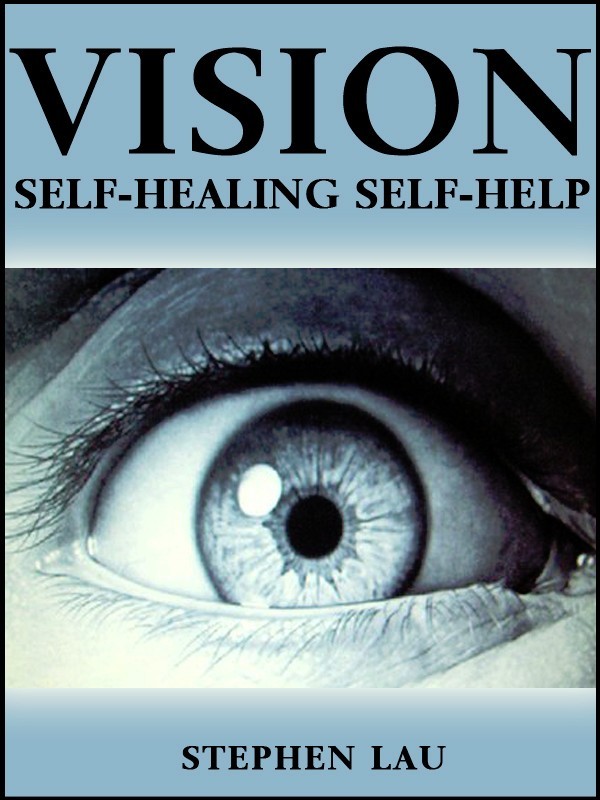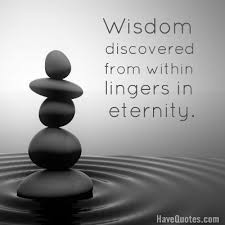
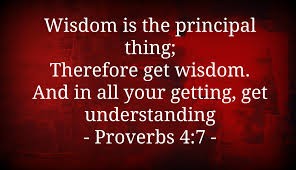
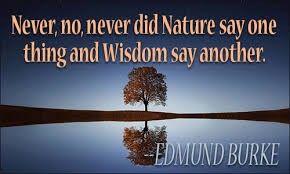
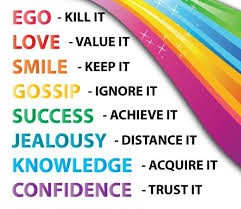



Stephen Lau's Facebook Pages

Selected Facebook Posts
by Stephen Lau
by Stephen Lau


Wisdom in Living
Stephen Lau
Stephen Lau
Stephen Lau's
EXPERIENCING OF LIFE RECIPES
EXPERIENCING OF LIFE RECIPES
THE WISDOM OF EMPTINESS
The essence of TAO is emptiness: having an empty mindset with no preconceived assumptions and presumptions; understanding that everything is impermanent and that nothing lasts forever.
Emptiness is NOTHINGNESS: we all come from dust, and into dust we shall all return. Nothing lasts, so the wisdom is to live in the NOW, which is a gift, and that is why it is called “present.”
Everything follows a natural cycle: what goes up must also come down; the day is always followed by the night - just like the four seasons.
Get the wisdom of LETTING GO of all attachments in order to live well, which is living in the present, instead of being haunted by the past or anticipating the future. Remember, only the present is real.
Stephen Lau
Copyright© by Stephen Lau
The essence of TAO is emptiness: having an empty mindset with no preconceived assumptions and presumptions; understanding that everything is impermanent and that nothing lasts forever.
Emptiness is NOTHINGNESS: we all come from dust, and into dust we shall all return. Nothing lasts, so the wisdom is to live in the NOW, which is a gift, and that is why it is called “present.”
Everything follows a natural cycle: what goes up must also come down; the day is always followed by the night - just like the four seasons.
Get the wisdom of LETTING GO of all attachments in order to live well, which is living in the present, instead of being haunted by the past or anticipating the future. Remember, only the present is real.
Stephen Lau
Copyright© by Stephen Lau
Stephen Lau's Tweets
Online Money
Have you been learning how to make money online, but couldn't make your first dollar online? Spending money doesn't guarantee any success!
Most of the gurus are hiding the SECRETS of online success so that you keep on buying more without making money. Get the KEY to the secrets!
This Super Affiliate is willing to reveal the secrets of his success; he lets you DUPLICATE his success.
Learn the 3 powerful strategies from an Amazon best-selling author to become a super affiliate secretly.
Many online newbies fail because they learn from the wrong person, simply because they don't know who is REAL in making money online.
Healthy Longevity
Lao Tzu: "A journey of a thousand miles begins with the first step." Take the first step; never PROCRASTINATE!
Life is a natural cycle-life is followed by death, just as day followed by night. Nothing lasts. Learn to let go.
Lao Tzu: “Live in the NOW.” The past was gone, the future is yet to come; only the present is real. It’s a gift; that’s why it is “present.”
If happiness is to be found in things that are outside, instead of inside, yourself, you may have easily become unhappy and depressed.
Albert Einstein: “Thinking is difficult; that is why so few people do it.” To become wiser, you must do your thinking, and do it often.
Tao Wisdom
”That which shrinks
Must first expand.
That which fails,
Must first be strong."
Everything follows a natural cycle, so accept and embrace.
Spontaneity is the essence of the natural cycle. What goes up must eventually come down; life begets death.
Intuition of spontaneity is knowing the impermanence of all things: nothing lasts no matter how we strive to keep the impermanent permanent.
Embracing everything is wisdom because it holds the key to enlightenment, which is TAO wisdom.
If Tao wisdom could be summarized in one word, it is the word "humility."
Humility is the enemy of the ego.
Happiness Wisdom
Don't avoid depression, which we all have. The wisdom is to experience it by going through it to become enlightened.
Depression is no respecter of persons: we all have it to a greater or lesser degree. Medications don't help; they intensify the dependence.
Margaret Wander Bonanno: "It is only possible to live happily ever after on a day-to-day basis." It is the wisdom of living in the NOW!
Gratitude is life-changing because it involves mindfulness, which is the essence of sustained happiness. Do some volunteer work!
Your EGO wants you to become better than others. In the process, it stresses you, making you unhappy.
Have you been learning how to make money online, but couldn't make your first dollar online? Spending money doesn't guarantee any success!
Most of the gurus are hiding the SECRETS of online success so that you keep on buying more without making money. Get the KEY to the secrets!
This Super Affiliate is willing to reveal the secrets of his success; he lets you DUPLICATE his success.
Learn the 3 powerful strategies from an Amazon best-selling author to become a super affiliate secretly.
Many online newbies fail because they learn from the wrong person, simply because they don't know who is REAL in making money online.
Healthy Longevity
Lao Tzu: "A journey of a thousand miles begins with the first step." Take the first step; never PROCRASTINATE!
Life is a natural cycle-life is followed by death, just as day followed by night. Nothing lasts. Learn to let go.
Lao Tzu: “Live in the NOW.” The past was gone, the future is yet to come; only the present is real. It’s a gift; that’s why it is “present.”
If happiness is to be found in things that are outside, instead of inside, yourself, you may have easily become unhappy and depressed.
Albert Einstein: “Thinking is difficult; that is why so few people do it.” To become wiser, you must do your thinking, and do it often.
Tao Wisdom
”That which shrinks
Must first expand.
That which fails,
Must first be strong."
Everything follows a natural cycle, so accept and embrace.
Spontaneity is the essence of the natural cycle. What goes up must eventually come down; life begets death.
Intuition of spontaneity is knowing the impermanence of all things: nothing lasts no matter how we strive to keep the impermanent permanent.
Embracing everything is wisdom because it holds the key to enlightenment, which is TAO wisdom.
If Tao wisdom could be summarized in one word, it is the word "humility."
Humility is the enemy of the ego.
Happiness Wisdom
Don't avoid depression, which we all have. The wisdom is to experience it by going through it to become enlightened.
Depression is no respecter of persons: we all have it to a greater or lesser degree. Medications don't help; they intensify the dependence.
Margaret Wander Bonanno: "It is only possible to live happily ever after on a day-to-day basis." It is the wisdom of living in the NOW!
Gratitude is life-changing because it involves mindfulness, which is the essence of sustained happiness. Do some volunteer work!
Your EGO wants you to become better than others. In the process, it stresses you, making you unhappy.
SCIENCE OF HAPPINESS ABOUT MARRIAGE AND PARENTING
Most Americans still want to get married, not just because of legally binding themselves to one another, but because of marital bliss and happiness. According to the science of happiness, married people tend to the wealthier, healthier, and more sexually fulfilled than unmarried people. Of course, there are many exceptions.
Marriage can-but not should-make you happy. What you need to do is to invest a lot of time and energy into your marriage to make you happy by turning it into a journey of self-discovery and personal growth. In other words, a good and happy marriage brings out the best in each other, and thus instrumental in bringing happiness.
According to several studies, those who are wealthy and educated get divorced much more than those who struggle financially; also, splitting happens more frequently later in life than they once were. They are the realities of marriage.
Remember:
A good marriage makes you healthier and happier. Marital bliss lasts longer than the happiness of unmarried couples.
The Science of Happiness about Parenting
Parenting may bring you satisfaction only if you are intentionally starting a family. But parenting is undertaking a difficult new venture fraught with many responsibilities, which are often very unpredictable. In addition, you are also forfeiting a lot of things that made you happy in the past.
Economist Andrew Oswald once said: “It’s not that children make you less happy; it’s just that children don’t make you more happy.”
But, according to a team of Californian psychologists, “overall, parents report happier, more satisfied, and thinking more about the meaning in life than non-parents do.”
Given that children create more work for those who love them, young parents, single parents, and moms may not find happiness in bringing up their children.
Remember:
If you are thinking of having kids to make you happier, think again! A parent’s first job is not to raise kids, but to enjoy them.
Human happiness has much to do with human wisdom. Get the Happiness Wisdom.
Stephen Lau
Copyright© by Stephen Lau
Most Americans still want to get married, not just because of legally binding themselves to one another, but because of marital bliss and happiness. According to the science of happiness, married people tend to the wealthier, healthier, and more sexually fulfilled than unmarried people. Of course, there are many exceptions.
Marriage can-but not should-make you happy. What you need to do is to invest a lot of time and energy into your marriage to make you happy by turning it into a journey of self-discovery and personal growth. In other words, a good and happy marriage brings out the best in each other, and thus instrumental in bringing happiness.
According to several studies, those who are wealthy and educated get divorced much more than those who struggle financially; also, splitting happens more frequently later in life than they once were. They are the realities of marriage.
Remember:
A good marriage makes you healthier and happier. Marital bliss lasts longer than the happiness of unmarried couples.
The Science of Happiness about Parenting
Parenting may bring you satisfaction only if you are intentionally starting a family. But parenting is undertaking a difficult new venture fraught with many responsibilities, which are often very unpredictable. In addition, you are also forfeiting a lot of things that made you happy in the past.
Economist Andrew Oswald once said: “It’s not that children make you less happy; it’s just that children don’t make you more happy.”
But, according to a team of Californian psychologists, “overall, parents report happier, more satisfied, and thinking more about the meaning in life than non-parents do.”
Given that children create more work for those who love them, young parents, single parents, and moms may not find happiness in bringing up their children.
Remember:
If you are thinking of having kids to make you happier, think again! A parent’s first job is not to raise kids, but to enjoy them.
Human happiness has much to do with human wisdom. Get the Happiness Wisdom.
Stephen Lau
Copyright© by Stephen Lau
SAMPLING TAO WISDOM QUOTES
Simplicity is the first step towards detachment, which is the key to unlocking the door to happiness. Live a simple lifestyle, deleting all the trimmings of life and living.
Attachment to all the trimmings of life and living boosts the ego, leading to pride, which is one of the Seven Deadly Sins. Humility, the opposite of pride, holds the key to having a good relationship with the Creator, without which, there is no enlightenment, and hence no wisdom to the secrets of the universe and the mysteries of the realm of creation-the manifestations of all things created.
"Simplicity is clarity.
It is a blessing to learn from those
with humble simplicity.
Those with an empty mind
will learn to find the Way.
The Way reveals the secrets of the universe:
the mysteries of the realm of creation;
the manifestations of all things created.
The essence of the Way is to show us
how to live in fullness and return to our origin."
(Lao Tzu, Tao Te Ching, chapter 65)
*****************************************
Living in the present is an awakening to the realities of all things. That all things follow a natural cycle or order, which is beyond human control. Living in the present affords us an opportunity to look more objectively at any given situation, allowing our minds to think more clearly, to separate the truths from the half-truths that might have led us astray all along.
According to Lao Tzu, only the present is real: the past was gone, and the future is uncertain and unpredictable. When the mind stays in the present, it does not see the ego-self because it does not exist in the present, and only in the deceptive mind.
"Living in the present moment,
we find natural contentment.
We do not seek a faster lifestyle,
or a better place to be.
We need the essentials of life,
not its extra trimmings." Lao Tzu
Simplicity is the first step towards detachment, which is the key to unlocking the door to happiness. Live a simple lifestyle, deleting all the trimmings of life and living.
Attachment to all the trimmings of life and living boosts the ego, leading to pride, which is one of the Seven Deadly Sins. Humility, the opposite of pride, holds the key to having a good relationship with the Creator, without which, there is no enlightenment, and hence no wisdom to the secrets of the universe and the mysteries of the realm of creation-the manifestations of all things created.
"Simplicity is clarity.
It is a blessing to learn from those
with humble simplicity.
Those with an empty mind
will learn to find the Way.
The Way reveals the secrets of the universe:
the mysteries of the realm of creation;
the manifestations of all things created.
The essence of the Way is to show us
how to live in fullness and return to our origin."
(Lao Tzu, Tao Te Ching, chapter 65)
*****************************************
Living in the present is an awakening to the realities of all things. That all things follow a natural cycle or order, which is beyond human control. Living in the present affords us an opportunity to look more objectively at any given situation, allowing our minds to think more clearly, to separate the truths from the half-truths that might have led us astray all along.
According to Lao Tzu, only the present is real: the past was gone, and the future is uncertain and unpredictable. When the mind stays in the present, it does not see the ego-self because it does not exist in the present, and only in the deceptive mind.
"Living in the present moment,
we find natural contentment.
We do not seek a faster lifestyle,
or a better place to be.
We need the essentials of life,
not its extra trimmings." Lao Tzu
HUMAN IMPERFECTIONS
According to Lau Tzu, good and evil exist side by side.
“With the fall of man, good cannot exist without evil.
Man is born with virtues, but grows up with vices.
Likewise, life and death complement each other.
Heaven is eternal life; hell is everlasting death.
Human existence is therefore dualistic:
it can make heaven out of hell, or hell out of heaven.
Faith and lack of faith go along with each other.
The first will be the last, and the last will be the first.”
(Lao Tzu, “Tao Te Ching”, chapter 2)
Suggested Bible verses for further reflection:
“For I know that good itself does not dwell in me, that is, in my sinful nature. For I have the desire to do what is good, but I cannot carry it out.” (Romans 7: 18)
“See now that I myself am he!
There is no god besides me.
I put to death and I bring to life,
I have wounded and I will heal,
and no one can deliver out of my hand.” (Deuteronomy 32: 39)
“Furthermore, tell the people, ‘This is what the Lord says: See, I am setting before you the way of life and the way of death.” (Jeremiah 21: 8)
The bottom line: Given the dualistic existence of man, we should rely not just on human wisdom, but also on Biblical wisdom; as a matter of fact, human wisdom is forever inadequate and imperfect; therefore, it has to be enhanced and enlightened by God’s wisdom, which is infinite and perfect.
Stephen Lau
Copyright© by Stephen Lau
According to Lau Tzu, good and evil exist side by side.
“With the fall of man, good cannot exist without evil.
Man is born with virtues, but grows up with vices.
Likewise, life and death complement each other.
Heaven is eternal life; hell is everlasting death.
Human existence is therefore dualistic:
it can make heaven out of hell, or hell out of heaven.
Faith and lack of faith go along with each other.
The first will be the last, and the last will be the first.”
(Lao Tzu, “Tao Te Ching”, chapter 2)
Suggested Bible verses for further reflection:
“For I know that good itself does not dwell in me, that is, in my sinful nature. For I have the desire to do what is good, but I cannot carry it out.” (Romans 7: 18)
“See now that I myself am he!
There is no god besides me.
I put to death and I bring to life,
I have wounded and I will heal,
and no one can deliver out of my hand.” (Deuteronomy 32: 39)
“Furthermore, tell the people, ‘This is what the Lord says: See, I am setting before you the way of life and the way of death.” (Jeremiah 21: 8)
The bottom line: Given the dualistic existence of man, we should rely not just on human wisdom, but also on Biblical wisdom; as a matter of fact, human wisdom is forever inadequate and imperfect; therefore, it has to be enhanced and enlightened by God’s wisdom, which is infinite and perfect.
Stephen Lau
Copyright© by Stephen Lau

IMPROVING WEAK VISION
How To Improve Weak Vision
As aging continues, eye vision weakens and deteriorates. Loss of vision is avoidable and preventable.
The conventional way of treating weak vision due to refractive error (light not properly refracted on the retina of the eye) is to make use of corrective lenses (eyeglasses or contacts) with proper prescriptions to enable the light from a close or distant object to refract accurately on the retina.
The conventional treatment serves two purposes: making the eye see more clearly; preventing further eyestrain through clearer vision
These are the sole reasons for the professionals to provide eyeglasses and contacts: to provide better vision, and to prevent more eyestrain.
The Bates Method of Treating Weak Vision
Dr. William Bates (1860-1931), an American physician, who recommended an alternative therapy (known as the Bates Method) aimed at improving eyesight naturally. Dr. Bates completely disagreed with the conventional theory of distorted lens. According to Dr. Bates, the conventional treatment is WRONG because the eye is constantly changing, so much so that the eye prescriptions (which are constant) in corrective lenses may not help the patients in certain conditions; quite the contrary, they unduly increase their eyestrain. That is to say, if the eye is forced to see in different eye conditions with the same corrective lenses, the eye will have to strain itself to see in different conditions, and thus causing further eyestrain that damages vision.
According to Dr. Bates, what might fit the eye (i.e. the prescriptions) at one moment might not be appropriate at another moment, given that the conditions of the eye are constantly changing. In addition, because the eye is capable of adapting and adjusting to different conditions (eye accommodation), wearing corrective lenses will deprive the eye of such accommodation, and thus leading to further vision deterioration. That was the reason for his objection to wearing corrective lenses.
Dr. Bates’ treatment was based on the belief that the incorrect refraction on the retina is due to weak and unrelaxed eye muscles, which cause distorted shape in the eyeball, resulting in the refraction falling in front of or behind the retina, instead of directly on the retina. The bottom line: treat your weak vision by RELAXING your eyes.
Stephen Lau
Copyright© by Stephen Lau
How To Improve Weak Vision
As aging continues, eye vision weakens and deteriorates. Loss of vision is avoidable and preventable.
The conventional way of treating weak vision due to refractive error (light not properly refracted on the retina of the eye) is to make use of corrective lenses (eyeglasses or contacts) with proper prescriptions to enable the light from a close or distant object to refract accurately on the retina.
The conventional treatment serves two purposes: making the eye see more clearly; preventing further eyestrain through clearer vision
These are the sole reasons for the professionals to provide eyeglasses and contacts: to provide better vision, and to prevent more eyestrain.
The Bates Method of Treating Weak Vision
Dr. William Bates (1860-1931), an American physician, who recommended an alternative therapy (known as the Bates Method) aimed at improving eyesight naturally. Dr. Bates completely disagreed with the conventional theory of distorted lens. According to Dr. Bates, the conventional treatment is WRONG because the eye is constantly changing, so much so that the eye prescriptions (which are constant) in corrective lenses may not help the patients in certain conditions; quite the contrary, they unduly increase their eyestrain. That is to say, if the eye is forced to see in different eye conditions with the same corrective lenses, the eye will have to strain itself to see in different conditions, and thus causing further eyestrain that damages vision.
According to Dr. Bates, what might fit the eye (i.e. the prescriptions) at one moment might not be appropriate at another moment, given that the conditions of the eye are constantly changing. In addition, because the eye is capable of adapting and adjusting to different conditions (eye accommodation), wearing corrective lenses will deprive the eye of such accommodation, and thus leading to further vision deterioration. That was the reason for his objection to wearing corrective lenses.
Dr. Bates’ treatment was based on the belief that the incorrect refraction on the retina is due to weak and unrelaxed eye muscles, which cause distorted shape in the eyeball, resulting in the refraction falling in front of or behind the retina, instead of directly on the retina. The bottom line: treat your weak vision by RELAXING your eyes.
Stephen Lau
Copyright© by Stephen Lau
AN EMPTY MIND FOR ANYTHING AND EVERYTHING
You are in the world, but not of the world.
So, do not identify yourself with anything and everything in the world-the car you are driving, the neighborhood you are living in, the name-brand dress you are wearing, and among many others.
What is wrong with them? You become attached to them; they only enhance and inflate your ego, making you shackled to the material world.
With a deflated ego, on the other hand, you may become enlightened and see who you really are, and not what people think you are. Enlightenment opens the door to the TAO of living for life.
The reality is that many of us are not only in the world, but also of the world; so, we are living not for life, but for the world.
“Focusing on status gives us pride, and not humility.
Hoarding worldly riches deprives us of heavenly assets.
An empty mind with no craving and no expectation helps us let go of everything.
Being in the world and not of the world, we attain heavenly grace.
With heavenly grace, we become pure and selfless.
And everything settles into its own perfect place.”
(Lao Tzu, Tao Te Ching, chapter 3)
The above is taken from Stephen Lau’s book The TAO of Living for Life.
You are in the world, but not of the world.
So, do not identify yourself with anything and everything in the world-the car you are driving, the neighborhood you are living in, the name-brand dress you are wearing, and among many others.
What is wrong with them? You become attached to them; they only enhance and inflate your ego, making you shackled to the material world.
With a deflated ego, on the other hand, you may become enlightened and see who you really are, and not what people think you are. Enlightenment opens the door to the TAO of living for life.
The reality is that many of us are not only in the world, but also of the world; so, we are living not for life, but for the world.
“Focusing on status gives us pride, and not humility.
Hoarding worldly riches deprives us of heavenly assets.
An empty mind with no craving and no expectation helps us let go of everything.
Being in the world and not of the world, we attain heavenly grace.
With heavenly grace, we become pure and selfless.
And everything settles into its own perfect place.”
(Lao Tzu, Tao Te Ching, chapter 3)
The above is taken from Stephen Lau’s book The TAO of Living for Life.
DO NOT FEAR DEATH
Death is a domain of the old: the elderly are often preoccupied with attitudes about death, and the inevitability of death. According to studies, the majority of the elderly wish to extend life for as long as possible, irrespective of their death anxiety level.
The Implications of Death
Life is a task-master: it teaches you how to survive. Death is also a leveler-of-man: it teaches you how to live. To appreciate life, you must come to grips with the reality of death, and, more importantly, with God.
Death Attitudes
For some people, due to the inevitability of death, they simply choose not to think about it in order to remain happy.
For others, in the imminence of death, there is often denial, which will gradually give way as aging continues until dying becomes more of a personal reality than an abstract fate.
Death Anxiety
Death anxiety is fear of death. It is fear of the pain of dying, fear of separation from loved ones, and fear of the unknown.
The level of death anxiety is determined by the following factors: projected inability to fulfill certain goals in the past (often accompanied by regret); perceived inability to accomplish certain goals in the future (work undone, relationship and business unfinished, or lifelong dreams unrealized); interpretation of the meaning of death, such as life after death, or death as an escape from pain and misery.
But, irrespective of the level, death anxiety is unhealthy, because it robs you of the joys of living in the present moment; if you are afraid to die, you may also be afraid to live-and thus depriving yourself of successful aging.
Coping with Death
Death is inevitable. Spiritual wisdom shows how one can cope with death or the imminence of death.
Positive meanings of life and death provide one with the motivation to go on living, and therefore adopting a healthy lifestyle in the latter part of one's life.
Positive meanings of life and death also enable one to embrace an attitude of acceptance of the inevitability of death, and thus instrumental in making the most out of the rest of one’s life to live well and to die well.
Positive meanings of life and death are effective coping mechanisms to deal with death and dying.
Decrease your focus on your life accomplishments, especially your contributions to society and mankind.
Accept the inevitability of human mortality. In other words, let go of fame and fortune, and all material attachments in life, especially the ego-self.
Chuang Tzu, an ancient Chinese philosopher once said: “How do I know that in clinging to this life I’m not merely clinging to a dream and delaying my entry into the real world. . . . That which makes my life good, makes my death even better . . . “
Stephen Lau
Copyright© by Stephen Lau
Live to 100 Years and Beyond
Death is a domain of the old: the elderly are often preoccupied with attitudes about death, and the inevitability of death. According to studies, the majority of the elderly wish to extend life for as long as possible, irrespective of their death anxiety level.
The Implications of Death
Life is a task-master: it teaches you how to survive. Death is also a leveler-of-man: it teaches you how to live. To appreciate life, you must come to grips with the reality of death, and, more importantly, with God.
Death Attitudes
For some people, due to the inevitability of death, they simply choose not to think about it in order to remain happy.
For others, in the imminence of death, there is often denial, which will gradually give way as aging continues until dying becomes more of a personal reality than an abstract fate.
Death Anxiety
Death anxiety is fear of death. It is fear of the pain of dying, fear of separation from loved ones, and fear of the unknown.
The level of death anxiety is determined by the following factors: projected inability to fulfill certain goals in the past (often accompanied by regret); perceived inability to accomplish certain goals in the future (work undone, relationship and business unfinished, or lifelong dreams unrealized); interpretation of the meaning of death, such as life after death, or death as an escape from pain and misery.
But, irrespective of the level, death anxiety is unhealthy, because it robs you of the joys of living in the present moment; if you are afraid to die, you may also be afraid to live-and thus depriving yourself of successful aging.
Coping with Death
Death is inevitable. Spiritual wisdom shows how one can cope with death or the imminence of death.
Positive meanings of life and death provide one with the motivation to go on living, and therefore adopting a healthy lifestyle in the latter part of one's life.
Positive meanings of life and death also enable one to embrace an attitude of acceptance of the inevitability of death, and thus instrumental in making the most out of the rest of one’s life to live well and to die well.
Positive meanings of life and death are effective coping mechanisms to deal with death and dying.
Decrease your focus on your life accomplishments, especially your contributions to society and mankind.
Accept the inevitability of human mortality. In other words, let go of fame and fortune, and all material attachments in life, especially the ego-self.
Chuang Tzu, an ancient Chinese philosopher once said: “How do I know that in clinging to this life I’m not merely clinging to a dream and delaying my entry into the real world. . . . That which makes my life good, makes my death even better . . . “
Stephen Lau
Copyright© by Stephen Lau
Live to 100 Years and Beyond

EXERCISES FOR EYE RELAXATION
Eye palming to relax the Eye
This unique eye-relaxation exercise uses your healing hands to direct energy to your eyes, as well as to rest your optic nerve and relax your entire nervous system.
Unlike sleep, which is unconscious and passive relaxation, palming is conscious and active relaxation. Therefore, palming is one of the best exercises for eye relaxation.
Practice palming at least for 10 to 30 minutes per session for three or more sessions daily to completely relax your eyes. Even at work, you can palm your eyes for 2 minutes, if possible, to relieve your eyestrain from the computer.
Sit comfortably with your elbows resting on a table in front of you-preferably in a darkened room, such as a bathroom without any window.
Rub your palms together to generate some warmth.
Place your palms over your eyes, without touching them, while resting them on the boney ridge surrounding your eyes with the heels of your hands on your cheekbones. Your eyes should be gently
Relax your mind, and breathe deeply through your nose, not your mouth. The slower your breathing is, the more relaxed your mind becomes.
Feel your abdomen and back expand and contract as you inhale and exhale, respectively.
Visualize complete darkness to relax your mind.
Feel your neck and shoulders expand and contract as your deep and slow breathing continues.
Visualize every part of your body-hands, fingers, toes, knees, and thighs-expand and contract with your inhalation and exhalation.
Practice eye palming whenever you feel fatigue in your eyes. It is impossible to palm for too long or for too much; some palm for hours to reap the benefits of both relaxation and meditation. If you feel any resistance to palming, it may probably be due to your subconscious resistance to relaxation. If you become more relaxed, you will see complete blackness. However, it is all right if you do not see complete blackness; just continue with your daily palming exercise.
Remember, we are living in a stressful world, and many of us simply cannot relax, even if we very much would like to. Attesting to the inability to relax, many of us easily and often stare without blinking-and, worse, without being aware of it. As a result, our vision slowly and gradually deteriorates over the years.
Do not let a day pass by without palming your eyes.
The “8” eye exercise
Do the following “8” eye exercise as often as required to relax your eye muscles as well to increase their flexibility.
Sit comfortably in a relaxed posture.
Consciously breathe in and breathe out through your nose until you attain a natural rhythm.
Imagine the figure “8” in the distance.
Let your eyes trace along the imaginary figure without moving your head.
First, trace it in one direction, and then in the opposite direction.
You can modify the exercise by imagining other alphabets and figures. The objective of this exercise, in addition to promoting relaxation and flexibility, is to train your eyes to consciously shift when focusing on an object in the distance.
The Taoist squeeze-and-open eye exercise
This ancient Chinese exercise developed by Taoist monks thousands of years ago increases blood circulation to the eyes, prevents watery eyes, and alkalizes the eyes to detoxify the liver. It removes eyestrain and soothes eye-muscle tension.
Inhale slowly, while squeezing your eyes tightly for 10 seconds.
Then, slowly exhale your breath, making the sh-h-h-h-h sound, while opening your eyes wide.
Repeat as many times and as often as required to cleanse the eyes and the liver.
Stephen Lau
Copyright© by Stephen Lau
Eye palming to relax the Eye
This unique eye-relaxation exercise uses your healing hands to direct energy to your eyes, as well as to rest your optic nerve and relax your entire nervous system.
Unlike sleep, which is unconscious and passive relaxation, palming is conscious and active relaxation. Therefore, palming is one of the best exercises for eye relaxation.
Practice palming at least for 10 to 30 minutes per session for three or more sessions daily to completely relax your eyes. Even at work, you can palm your eyes for 2 minutes, if possible, to relieve your eyestrain from the computer.
Sit comfortably with your elbows resting on a table in front of you-preferably in a darkened room, such as a bathroom without any window.
Rub your palms together to generate some warmth.
Place your palms over your eyes, without touching them, while resting them on the boney ridge surrounding your eyes with the heels of your hands on your cheekbones. Your eyes should be gently
Relax your mind, and breathe deeply through your nose, not your mouth. The slower your breathing is, the more relaxed your mind becomes.
Feel your abdomen and back expand and contract as you inhale and exhale, respectively.
Visualize complete darkness to relax your mind.
Feel your neck and shoulders expand and contract as your deep and slow breathing continues.
Visualize every part of your body-hands, fingers, toes, knees, and thighs-expand and contract with your inhalation and exhalation.
Practice eye palming whenever you feel fatigue in your eyes. It is impossible to palm for too long or for too much; some palm for hours to reap the benefits of both relaxation and meditation. If you feel any resistance to palming, it may probably be due to your subconscious resistance to relaxation. If you become more relaxed, you will see complete blackness. However, it is all right if you do not see complete blackness; just continue with your daily palming exercise.
Remember, we are living in a stressful world, and many of us simply cannot relax, even if we very much would like to. Attesting to the inability to relax, many of us easily and often stare without blinking-and, worse, without being aware of it. As a result, our vision slowly and gradually deteriorates over the years.
Do not let a day pass by without palming your eyes.
The “8” eye exercise
Do the following “8” eye exercise as often as required to relax your eye muscles as well to increase their flexibility.
Sit comfortably in a relaxed posture.
Consciously breathe in and breathe out through your nose until you attain a natural rhythm.
Imagine the figure “8” in the distance.
Let your eyes trace along the imaginary figure without moving your head.
First, trace it in one direction, and then in the opposite direction.
You can modify the exercise by imagining other alphabets and figures. The objective of this exercise, in addition to promoting relaxation and flexibility, is to train your eyes to consciously shift when focusing on an object in the distance.
The Taoist squeeze-and-open eye exercise
This ancient Chinese exercise developed by Taoist monks thousands of years ago increases blood circulation to the eyes, prevents watery eyes, and alkalizes the eyes to detoxify the liver. It removes eyestrain and soothes eye-muscle tension.
Inhale slowly, while squeezing your eyes tightly for 10 seconds.
Then, slowly exhale your breath, making the sh-h-h-h-h sound, while opening your eyes wide.
Repeat as many times and as often as required to cleanse the eyes and the liver.
Stephen Lau
Copyright© by Stephen Lau
Anything Is Everything
Everything Is Nothing
Nothing Is Everything
by Stephen Lau
This newly published book explains the paradoxes of life: what "anything is everything" may be true to some people, but not to every one; "everything is nothing" is the reality of life, which is the impermanence of everything; "nothing is everything" is the profound wisdom to understand that the nothingness of everything may ultimately become everything if there is enlightenment in living as if everything is a miracle.
For more information, go to the following:
ANYTHING IS EVERYTHING
EVERYTHING IS NOTHING
NOTHING IS EVERYTHING
Everything Is Nothing
Nothing Is Everything
by Stephen Lau
This newly published book explains the paradoxes of life: what "anything is everything" may be true to some people, but not to every one; "everything is nothing" is the reality of life, which is the impermanence of everything; "nothing is everything" is the profound wisdom to understand that the nothingness of everything may ultimately become everything if there is enlightenment in living as if everything is a miracle.
For more information, go to the following:
ANYTHING IS EVERYTHING
EVERYTHING IS NOTHING
NOTHING IS EVERYTHING
